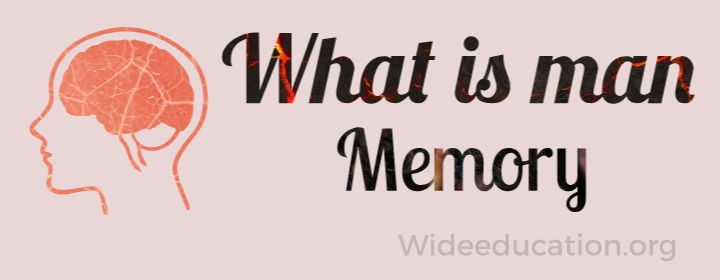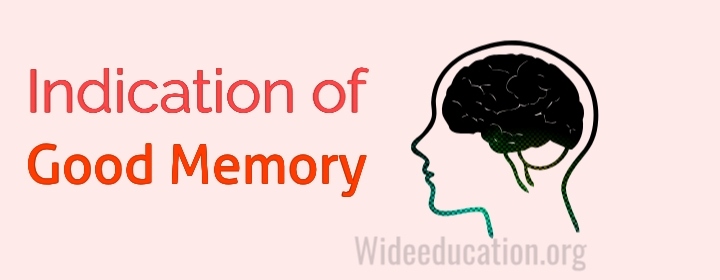Introduction about Learning Learning is an important phase of human life. It is a basic factor in education. It,is growth in the adaptation of behaviour to a wide variety of situations and circumstances. Learning is a comprehensive term and includes varied activities and experiences which have an important influence
What is Memory & StagesTable of Contents |
You know about phone memory Pc memory or many technical storage or memory,But friends now know about man memory. Depending on the age and learning skill memory could be different types and categories.In below I describe some point of memory level.
i- Short term memory (STM)
ii- Long term memory (LTM)
iii- Habit memory / Implicit memory
iv- Remot memory
v- Epidamic memory
vi- Sensory memory
Short term memory (STM)
Short term memory means we don’t need to remember the real fact when we already done it, some neaurologist also include an STM is called ‘working memory’
Long term memory (LTM)
Long term memory is called to storage of information an Long period, if some one can remember something done in few year ago and they express just like few hour, it is long term memory.
Habit memory/Implict memory
Habit memory is the function of body like motor, also you says automachanisms,once you read how to drive bike, cycle or car, those are you never forgate.
Remote Memory
Remote memory is called as long term memory, remote memory is able to remember events from many year earlier.
Episodic Memory
Episodic memory is the uniquie memory of every persoin to persion. Like remember the first day of college, job first day.
Lastly know abou Sensory Memory
Sensory Memory
Man is very sensitive it refers that ,Man have five mejore sense organ touch, taste, sight, hearing, & smell. All are under Sensory Memory
Concept And Stages Of Memory Analysis |
Concept of Memory
(i) Memory means the ideal revival of an object or event or experience. It is the real of an old personal experience which had temporarily dropped from our consciousness.
(ii) It may be exemplified by taking the case of our remembering some past fact of our childhood.
(iii) A witness giving evidence in a court furnishes a typical example of memory. He recalls, as far as possible, the past object and events which he had
witnessed, in the order and manner of their original occurrence. Thus in the faot remembered is referred to the past, But the mere dating of an event in the past is not memory, it must be our own past. Hence, in strict appropriateness.
(iv) memory is recall or re-in-statement of an old experience with the additional consciousness that we have thought or experienced its occurrence.
Memory Definiation |
For a layman, memory implies the power to remember the experience.
1. Stout’s: Memory is the ideal revival of past experiences as far as possible, in the manner and order in which originally occurred.
2. Woodworth’s : “Memory consists in remembering what previously been learnt.He regards memory as involving learning, retaining, recall and recognition.
Stages Memory |
Psychologists often speak of the four stages or factors involved memory. These are: –
1. Registration or Learning
2. Retention
3: Recall
4. Recognition
Registration or Learning |
Learning or Registration is the-first step in memory.
There are several laws of learning which help to facilitate learning process. Different theories of
learning have been put forth by different psychologists.Further, learning depends upon the various conditions such as attitude, interest and motives of learner, type of material, length of
elesson, rate of presentation, and the method of learning and so on.The other three factors depend upon learning.
Retention |
(i) Every experience leaves behind it residual dispositions or traces which are retained and they help in subsequent recall.
(ii) This fact of retaining the traces is named retention or retentiveness.
(iii) Retention is defined as aresting state of impressions received by the mind.
(iv) Retention depends upon several factors such as the Individual mind, health, interest and thinking.
(v)That is why some people can learn quickly but their retention is very poor. There are others who may learn at a slow pace, but their retention is long.
Recall |
(i)Recall is the reproduction of the material learnt and retained in the mind.
(ii) Recall is of two types: Spontaneous recall and delibera to recall. The recall is spontaneous when no special effort is involve to recall an event or a name. The recall is deljberate when exert our mind to remember certain facts, for example, recall the examination hall.”
Recognition |
The most important factor in memory recognition. Whenever an event or experience is recalled must be recognized to be our own, that is, we have ourselves experienced it in the past.
INDICATIONS OF A GOOD MEMORY |
A number of characteristics of Good memory is a great asset.
1. Rapid learning
Good memory facilitates learning and not much time is wasted Certain other factors like concentration, attention and interest are also involved in rapid learning.
2.Longer retention
Good memory helps a person in retaining the learnt material for a longer time.
3. Early and accurate recall
Early recall’is another indication of good memory. Certain people cannot recall the right thing at the Right time. They have bad memory.
4. Rapid recognition
Early recall must be accompanied by quick recognition of the definite idea needed for certain occasion. Unless you are able to recognise the idea which provides correct answer to a ticklish situation, you will give a proof of poor memory, and will not do well in that situation. Thus, a good memory is always serviceable and helps in recalling the required details with ease, speed, accuracy and promptness. According to Stout, rapidity, quickness in-length of time and duration,promptness and accuracy are the chief marks of good memory.
IMPROVEMENT OF MEMORY |
The question has often been asked Can memory be improved? The modern explanation for this question is that the possibilities of improvement of memory are limited if not impossible.
(i)The reason for this is that one’s retentive power is innate and mostly depends upon psychological factor and heredity. Easy grasp and rapid recall mainly depend upon one’s intelligence. Moreover, one’s power of retention increases up to a certainage, possibly up to 11 or 12. Immediate memory develops slowly up to 16 and further increases till one is 25 years of age.
(ii)Some improvement of memory is possible if one could improve the conditions and methods of learning,because in many cases poor the result of improper methods of learning.
(iii)lt has been well said by William James: “All improvements of memory consist in the improvement of one’s own habitual methods of recording facts, methods which must be mechanical,judicious or ingenious
Suggestions for the Improvement of Memory
We may approach the problem from two channels.
(i) Favourable conditions which improve remembering.
ii) Improved methods which enhance memory.
I. Favourable conditions |
(i) Learning which takes place in healthy condition and atmosphere free from fatigue improves remembering,
(ii) Intention to learn coupled with whole-hearted concentration gives longer retention and better recall.
(iii) The learner should be made to pay close attention and hie should be free from anxieties and worries. Keen observation rather than mere listening goes a long way in better grasp.
(iv) Proper motivation facilitates learning and enhances memory. Children learn quickly and pay keen attention if there is a strong motive to inspire learning. Motivation kindles interest.
(v) The principle of association is very helpful in remembering and recall. Experiments have proved that even in learning the list of nonsense syllables there is tendency to make use of associations.
(vi)Meaningful concepts, ideas or principles are remembered better and recalled easily than bare facts.
II. Improved Methods |
Economy in learning, especially in school situation can be improved having improved methods of teaching in addition to above favourable conditions. A few such methods to economies motivation is suggested below.
(a) Over-Learning:
Over learning minimizes forgetting and fixes the
new material permanently in the mind of learner. Over learning implies learning-beyond the stage when the material’can be said to have been learnt.
(b) Learning by Doing:
It produces more permanent effect than passive learninig can.
Know about Learning –
Teaching as a profession
Following
| Home | |
| YouTube | Contact us |
| Telegram | About is |



